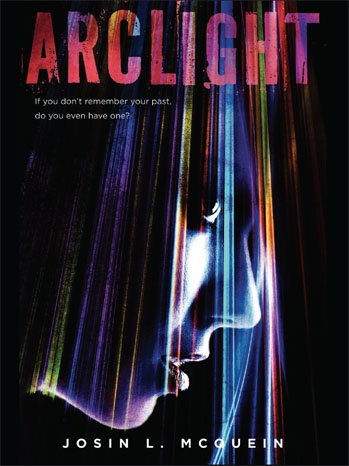Thanks for having me over today.
I’ve been asked to talk a bit about the idea of Dystopia, which has, of course, been a major trend in novels, movie, and television for the last few years. But why? What makes it so popular?
It’s an interesting question – one you could probably write a university thesis on, if you wanted to.
Dystopia has become a catch-all phrase that means every kind of semi-sci-fi, or post-Apocalyptic, or “bad society of the future” story out there. The Apocalypse is a great equalizer, and these stories always have some major cataclysm that starts the world on a downward spiral into darkness. It can be a war, or a global blight, or alien invasion, but something has to light the match that causes society to implode.
What’s left is a lot like what happens when fire strikes shrub forests. Everything’s razed to ash, and it looks like a wasteland, but soon, something amazing happens. You see, there’s a handful of flower species that only bloom after such a blaze. They need the destruction as their spark of life, and right there in the middle of all that monochrome rubble and devastation, they burst into full color, bringing life that never would have been seen otherwise.
The main characters in most Dystopias are like that. They only flourish after the burn; that’s when they shake off the ashes and stand up to be seen while everything else falls apart into smoking heaps around them. Everyone wants to be that kind of person. Everyone wants to be able to say: “Don’t look at the destruction, look at me. I’m still here; I’m alive and I’m perfect for this situation.”
Dystopia is society-soup. It doesn’t matter who or what they anyone was before the fire – only after counts. Money means nothing when there’s no economy. Power shifts based on who’s in charge at the moment and how much they can trust the person standing behind them. All the rules go out the window and people who had no voice are suddenly on even footing with those who used to be in charge.
Basically, everything’s high school, if high school had zombie viruses and killer robots.
In my novel, Arclight, the flash point was a medical disaster. I won’t go into it too much because of spoilers, but basically the world fell to someone’s good intentions gone wrong. Now, all that’s left of human society is one outpost that has to live in a state of perpetual daylight because there are monsters called the Fade outside their walls that thrive in the darkness.
Into this world steps a girl who is the only person known to have ever faced these creatures and survived, unfortunately, she can’t tell anyone how she did it. The trauma of losing her family and her home, on top of running from the darkness and the Fade for days caused a mental block, meaning she literally doesn’t know her own face when she sees it. She’s blank. She’s got desolation inside and out, and she’s trying to figure out how to flourish despite that.
A lot of people would crumble under that kind of pressure, but such people do not make good heroines for novels. Marina perseveres, and I honestly think the draw of Dystopian novels and movies is that simple. It’s not about the destruction or the death, and it’s not about the fear or the loss. It’s about hope and life, and finding the strength to stare death in the face and say “no more.” They aren’t depressing at all.
Great Dystopians stand up after the fire and dance in the ashes like they’re playing in the snow, and who doesn’t love that?
